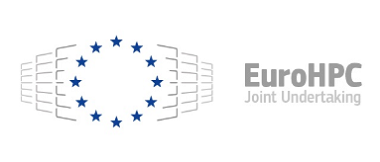The term ‘High-Performance Computing’ (HPC) refers to technologies and the use of powerful supercomputers (connecting hundreds of thousands or millions of computing units operating simultaneously in one system or close proximity) for large and fast calculations that are so demanding that they cannot be performed using general-purpose computers.
High-performance computing methodologies include modelling and simulation, advanced data analysis, and visualisation, used for highly computational or data-intensive tasks in a wide range of scientific, engineering, industrial, business, and public sector applications.
HPC is at the core of major advances and innovations in the digital age where to out-compute is to out-compete. HPC is a key technology for science, industry, and society as a whole.
Examples of HPC applications:
- early disease detection and treatment;
- new therapies based on personalised and precision medicine;
- understanding the functioning of the human brain;
- predicting the climate development;
- space observations;
- preventing and managing major natural disasters;
- accelerating the development of new materials.
The use of HPC also significantly reduces the design and production cycles in the industry.
Furthermore, HPC is of key importance for national security and defence, e.g. for the development of complex encryption technologies, monitoring and responding to cyber-attacks, and for effective forensics and nuclear simulations.
The signatory countries of the European Declaration on High-Performance Computing, including Croatia, recognised the urgent need for joint investment with the Union to provide Europe’s scientific and industrial users with a leading HPC infrastructure that meets their demanding needs. The main goal is to develop the necessary pre-exascale (capable of at least one hundred million billion or 1017 calculations per second) and exascale (capable of at least one billion billion or 1018 calculations per second) supercomputing infrastructure in Europe by 2022/2023.
In this regard, the Commission carried out an impact assessment to identify the best instrument to achieve these objectives, and as a result, the EuroHPC Joint Undertaking (JU) was established. To date, the following countries have joined the JU: Austria, Belgium, Bulgaria, Croatia, Cyprus, Czech Republic, Denmark, Estonia, Finland, France, Germany, Greece, Hungary, Iceland, Ireland, Italy, Latvia, Lithuania, Luxembourg, Montenegro, the Netherlands, North Macedonia, Norway, Poland, Portugal, Romania, Slovakia, Slovenia, Spain, Sweden, Switzerland, and Turkey.
The Republic of Croatia is one of the signatories of the EuroHPC Declaration, which automatically states it as one of the countries participating in the initiative.
EuroHPC JU is a public-private partnership that provides a common legal, contractual, and organisational framework for structuring the joint commitments that the participants are undertaking. It provides its members with a solid governance structure and financial security, can jointly procure and operate world-class HPC systems concurrently promoting (in particular European) technology, and can act as an owner of pre-exascale and exascale supercomputers jointly funded by its members, ensuring the non-discriminatory access to the infrastructure.
Ultimately, the Joint Undertaking can initiate various R&D&I programmes and their subsequent integration into European exascale supercomputing systems. In that sense, it is also closing the loop that starts with R&D and ends with the delivery and operation of exascale HPC systems, contributing to the development of a competitive European technology industry.


